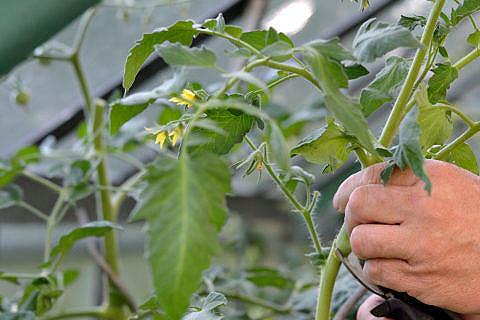Plants communicate at a molecular level
Biologists at FAU identify a protein which recognises Cuscuta as a parasit
In cooperation with researchers of the University of Tübingen, the University of Tromsø, the UC Davis and the Sainsbury Laboratory in Norwich, the team of Prof. Dr. Markus Albert (Division of Molecular Plant Physiology at the Biology Department) has discovered how tomato plants identify Cuscuta as a parasite. The plant has a protein in its cell walls that is identified as ‘foreign’ by a receptor in the tomato. Their findings have now been published in the renowned journal Nature Communications.
Cuscuta spp., also known as dodder, is a parasitic vine which grafts to the host plant using special suckers to obtain water, minerals and carbohydrates. The parasite also attacks and damages crops such as oilseed rape, sweetcorn, soy, flax or clover. Although the infection generally goes undetected by the host, some species of tomato actively defend themselves by forming wooden tissue which prevents the suckers from penetrating the plant. In earlier research, the biologists at FAU discovered that these tomatoes possess a special receptor, the Cuscuta receptor 1 (CuRe1), which triggers the defence mechanism. However, until now it was unclear how the receptor recognises the danger posed by the dodder.
The researchers have now succeeded in answering this question: the dodder possesses a specific marker in its cellular wall, a glycine-rich protein (GRP). Using its receptor CuRe1, the tomato is able to recognise the molecular pattern of the GRP and identify the dodder as a pathogen, and triggers the immune reaction as a result. The new findings concerning the molecular dialogue between the Cuscuta marker and the tomato receptor may help to increase the resistance of crop plants against parasitic plants.
Further information
DOI: ‘The tomato receptor CuRe1 senses a cell wall protein to identify Cuscuta as a pathogen’
Prof. Dr. Markus Albert
+ 49 9131/85-28211
markus.albert@fau.de
